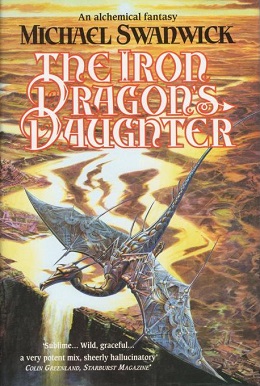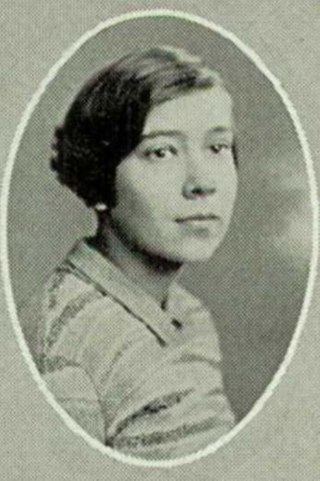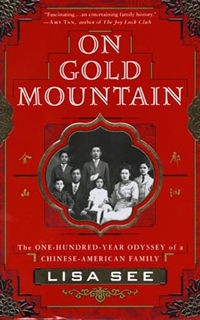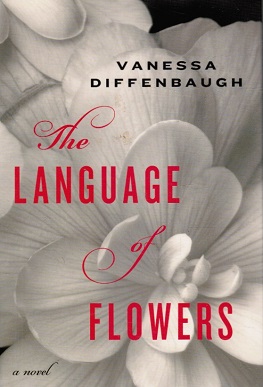
Pearl Comfort Sydenstricker Buck was an American writer and novelist. She is best known for The Good Earth, the best-selling novel in the United States in 1931 and 1932 and which won her the Pulitzer Prize in 1932. In 1938, Buck became the first American woman to win the Nobel Prize in Literature "for her rich and truly epic descriptions of peasant life in China" and for her "masterpieces", two memoir-biographies of her missionary parents.

The Iron Dragon's Daughter is a 1993 science fantasy novel by American writer Michael Swanwick. The story follows Jane, a changeling girl who slaves at a dragon factory in the world of Faerie, building part-magical, part-cybernetic monsters that are used as jet fighters. The plot of her story takes the form of a spiral, with events and characters constantly recurring in new settings.

The Joy Luck Club is a 1989 novel written by Amy Tan. It focuses on four Chinese immigrant families in San Francisco who start a club known as The Joy Luck Club, playing the Chinese game of mahjong for money while feasting on a variety of foods. The book is structured similarly to a mahjong game, with four parts divided into four sections to create sixteen chapters. The three mothers and four daughters share stories about their lives in the form of short vignettes. Each part is preceded by a parable relating to the themes within that section.

Dagmara Domińczyk is a Polish-born actress. She has appeared in the films Rock Star (2001), The Count of Monte Cristo (2002), Kinsey (2004), Trust the Man (2005), Lonely Hearts (2006), Running with Scissors (2006), Higher Ground (2011), The Letter (2012), The Immigrant (2013), Big Stone Gap (2014), A Woman, a Part (2016), The Assistant (2019), and The Lost Daughter (2021). Domińczyk also had a main role in the HBO comedy-drama television series Succession (2018–2023).

Andrea Libman is a Canadian actress. She is known for providing voice acting in various animated shows, such as voicing the characters of Pinkie Pie and Fluttershy in the Discovery Family series My Little Pony: Friendship Is Magic and its spinoffs. She has also appeared in Little Women, Andre, and a guest role on The X-Files.

The Joy Luck Club is a 1993 American drama film about the relationships between Chinese-American women and their Chinese immigrant mothers. It was directed by Wayne Wang and stars Tsai Chin, Kieu Chinh, Lisa Lu, France Nuyen, Rosalind Chao, Lauren Tom, Tamlyn Tomita, and Ming-Na Wen. The film is based on the 1989 novel of the same name by Amy Tan, who co-wrote the screenplay with Ronald Bass. The film was produced by Bass, Tan, Wang, and Patrick Markey, while Oliver Stone served as an executive producer. Four older women, all Chinese immigrants living in San Francisco, meet regularly to play mahjong, eat, and tell stories. Each of these women has an adult Chinese-American daughter. The film reveals the hidden pasts of the older women and their daughters, and how their lives are shaped by the clash of Chinese and American cultures as they strive to understand their family bonds and one another.

Girls in Pants: The Third Summer of the Sisterhood, published in 2005, is the third in a series of five books The Sisterhood of the Traveling Pants (2001), The Second Summer of the Sisterhood (2003), Forever in Blue (2007), and Sisterhood Everlasting. The books are written by American author Ann Brashares.

Valerie Taylor was an American author of books published in the lesbian pulp fiction genre, as well as poetry and novels after the "golden age" of lesbian pulp fiction. She also published as Nacella Young, Francine Davenport, and Velma Tate. Her publishers included Naiad Press, Banned Books, Universal, Gold Medal Books, Womanpress, Ace and Midwood-Tower.

Lisa See is an American writer and novelist. Her books include On Gold Mountain: The One-Hundred-Year Odyssey of My Chinese-American Family (1995), a detailed account of See's family history, and the novels Flower Net (1997), The Interior (1999), Dragon Bones (2003), Snow Flower and the Secret Fan (2005), Peony in Love (2007) and Shanghai Girls (2009), which made it to the 2010 New York Times bestseller list. Both Shanghai Girls and Snow Flower and the Secret Fan received honorable mentions from the Asian/Pacific American Awards for Literature.

El extraño retorno de Diana Salazar is a Mexican telenovela produced by Carlos Téllez for Televisa in 1988. It is an unusual example of a telenovela which addresses supernatural topics. The telenovela first begins in Zacatecas, New Spain in 1640 and later transitions to Mexico City in 1988, in which a woman accused of witchcraft and burned by the Holy Inquisition, reincarnates into a young girl who seeks to find the reason for her constant nightmare of being burned at the stake. The series stars Lucía Méndez, Jorge Martínez, Alejandro Camacho and Alma Muriel.

On Gold Mountain: The One-Hundred-Year Odyssey of My Chinese-American Family describes 100 years of author Lisa See's family history, providing a complex portrait of her family’s hard work, suffering, failures and successes as they moved from China to the United States. Speaking of the Chinese side of her family, See has said: "Things were so fractured and wild at home ... But the weekends with my grandparents became the real center for me ... It was the side of the family I identified more with. It was fun, romantic, solid".

Peony in Love is the fifth of Lisa See's novels. Her previous novel, Snow Flower and the Secret Fan, and Peony in Love emphasize the difficulty 19th- and 17th-century Chinese women had in achieving freedom and identity in a society that was both male dominated and rigid in its gender expectations.

The Onion Girl is a 2001 contemporary urban fantasy novel by Canadian writer Charles De Lint, which takes place in the Newford universe. It is the first Newford novel centering on the recurring character of Jilly Coppercorn, now a middle-aged woman. The book was a finalist for the World Fantasy Award. De Lint published a sequel in 2006, Widdershins, and a 2007 prequel, Promises to Keep, the latter of which featured Jilly as a young woman.

Shanghai Girls is a 2009 novel by Lisa See. It centers on the complex relationship between two sisters, Pearl and May, as they go through great pain and suffering in leaving war-torn Shanghai, and try to adjust to the difficult roles of wives in arranged marriages and of Chinese immigrants to the U.S. This work marks a return to many of the themes the author addressed in her first major work, On Gold Mountain, a memoir of her family's history. The novel is set between 1937–57 and matches Parts IV and V of the memoir.

Lisbeth Salander is a fictional character created by Swedish author and journalist Stieg Larsson in his award-winning Millennium series. She first appeared in the 2005 novel The Girl with the Dragon Tattoo, as an antisocial computer hacker with a photographic memory who teams up with Mikael Blomkvist, an investigative journalist and publisher of a magazine called Millennium. Salander reappears in The Girl Who Played with Fire (2006) and The Girl Who Kicked the Hornets' Nest (2007), sequels that Larsson had written before he died in 2004.

Lady Blue Shanghai is a 16-minute Internet promotion short film for Dior written, directed and edited by David Lynch. It stars Marion Cotillard, Gong Tao, Emily Stofle, Cheng Hong, Lu Yong and Nie Fei, with music by Lynch, Dean Hurley, and Nathaniel Shilkret.

China Dolls is a 2014 novel by Lisa See. It depicts the largely forgotten world of Chinese American nightclubs and performers of the '30s and '40s. The book opens with a quotation attributed to Buddha: "Only three things cannot be long hidden: the sun, the moon, and the truth." See organizes her narrative around these three elements – The Sun (October 1938 – August 1940; The Moon ; and The Truth. The novel briefly concludes with a reunion of many of the main characters in 1988.

Sunny Piggy is a 2000 Chinese romantic fantasy comedy-drama television series. It stars Xu Zheng as Zhu Bajie, a foolish pig who wanted to become human, and Tao Hong as a kindhearted dragon princess who loved him unconditionally until her death. Most characters, including Zhu Bajie, are taken from the 16th-century novel Journey to the West and Chinese mythology.

The Language of Flowers is the debut novel of American author Vanessa Diffenbaugh. It was published in 2011 by Ballantine Books. The novel follows the fraught life of a Victoria Jones, who by the age of 18, had lived in 32 foster homes, and becomes a flower arranger.

Alice Johnson is a fictional character in the A Nightmare on Elm Street franchise. She first appears in A Nightmare on Elm Street 4: The Dream Master (1988) as a teenager that inherits dream superpowers from the victims of enigmatic serial killer Freddy Krueger. In this film, she was portrayed by Lisa Wilcox—who reprises the role in A Nightmare on Elm Street 5: The Dream Child (1989).




















